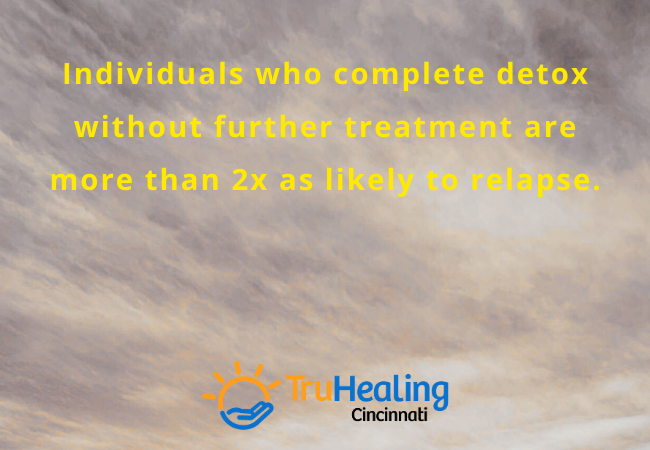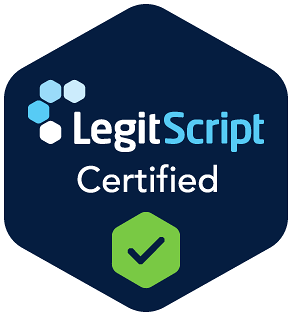Opioids can silently take over a person’s life. What may begin as a prescription for pain can quickly spiral into dependence and addiction. In Ohio, and especially in cities like Cincinnati, the opioid crisis has touched nearly every community. But recovery is possible — and recognizing the signs early can save lives.
If you or someone you love is struggling, this guide will help you identify the signs that it may be time to seek Opioid Addiction Treatment in Cincinnati, Ohio, and explore the best places to get help, including the trusted programs at TruHealing Cincinnati.
The Opioid Crisis in Cincinnati, Ohio: A Community Under Pressure
Cincinnati, like many cities in Ohio, continues to battle a devastating opioid epidemic. According to the Ohio Department of Health, thousands of opioid-related overdoses occur each year — many resulting in death. Synthetic opioids like fentanyl are now the leading cause of drug overdose fatalities statewide.
These heartbreaking statistics emphasize the importance of early intervention and access to quality Drug Addiction Treatment in Cincinnati, Ohio.
What Are Opioids — and Why Are They So Addictive?
Opioids are a class of drugs that include:
- Prescription painkillers (like oxycodone, hydrocodone, morphine)
- Synthetic opioids (like fentanyl)
- Illegal drugs (like heroin)
Opioids attach to brain receptors and reduce the perception of pain. But they also trigger the release of dopamine, creating a powerful feeling of euphoria. Over time, the brain becomes dependent on these drugs to function, leading to addiction.
10 Warning Signs You May Need Opioid Addiction Treatment
Recognizing the signs of addiction can be difficult — especially when denial is strong. Here are 10 red flags that indicate it may be time to seek help through an Addiction Treatment Center in Cincinnati, Ohio:
1. Using More Than Prescribed
If you find yourself increasing your dose or taking opioids more often than directed, it could signal growing dependence.
2. Inability to Stop
Have you tried to stop using opioids — but couldn’t? Failed attempts to quit are a clear sign of addiction.
3. Cravings
Persistent thoughts about getting or using opioids, even when you’re not in physical pain, are a key symptom.
4. Neglecting Responsibilities
Are work, school, or family commitments falling apart because of your use?
5. Changes in Mood or Personality
Depression, anxiety, irritability, and mood swings are often tied to opioid use disorder.
6. Withdrawal Symptoms
When you don’t take opioids, do you experience sweating, shaking, nausea, pain, or insomnia? These are withdrawal symptoms — and they’re treatable through a Medical Detoxification Program in Cincinnati, Ohio.
7. Doctor Shopping or Illegal Use
Seeking multiple prescriptions or turning to street drugs like heroin or fentanyl are serious red flags.
8. Isolation
Avoiding friends, family, and social situations is common when addiction takes hold.
9. Physical Health Decline
Opioid use can affect appetite, sleep, immunity, and general well-being.
10. Overdose Scare
If you or someone you know has overdosed, immediate Opiate Addiction Treatment in Cincinnati, Ohio is crucial.
When to Seek Professional Help
If you recognized even a few of the signs above, it’s time to explore professional Opioid Addiction Treatment in Cincinnati, Ohio. Addiction is a chronic disease — not a moral failing — and it responds best to structured, evidence-based care.
Getting help early can prevent severe health consequences, legal trouble, relationship loss, and even death.
Where to Get Opioid Treatment in Cincinnati, Ohio
At TruHealing Cincinnati, we provide compassionate, comprehensive care for individuals struggling with opioid addiction. As a leading Addiction Treatment Center in Cincinnati, Ohio, we offer a full continuum of care tailored to each client’s needs.
Our programs include:
1. Medical Detox Program Cincinnati, Ohio
The first step in recovery is often medical detox. At TruHealing, our Medical Detoxification Program in Cincinnati, Ohio helps individuals safely and comfortably withdraw from opioids.
Key features:
- 24/7 medical supervision
- Medication-assisted detox (MAT) to ease withdrawal symptoms
- Emotional and psychological support during detox
- Preparation for ongoing treatment
2. Partial Hospitalization Treatment in Cincinnati, Ohio (PHP)
Once detox is complete, PHP offers full-day treatment with structured therapy and clinical care while allowing clients to return home at night.
Highlights include:
- Daily group and individual therapy
- Co-occurring mental health treatment
- Holistic support including mindfulness and nutrition
- Transition planning and relapse prevention
3. Intensive Outpatient Treatment in Cincinnati, Ohio (IOP)
IOP offers a flexible schedule for clients who need continued support but have regained some stability in daily life.
Our IOP includes:
- Several therapy sessions per week
- Family therapy and support groups
- Continued medication management (if needed)
- Life-skills development and goal-setting
How Our Team Treats the Whole Person
Opioid addiction affects every aspect of your life — physical, mental, emotional, and social. That’s why we provide care that addresses:
- Mental health disorders like depression, trauma, and anxiety
- Behavioral patterns that lead to relapse
- Relationship repair through family therapy
- Coping skills and stress management
- Long-term recovery planning
We don’t just treat addiction — we help you rebuild your life.
The Power of Medication-Assisted Treatment (MAT)
MAT combines medications like buprenorphine (Suboxone) with counseling and behavioral therapy. It is one of the most effective tools in modern Opioid Addiction Treatment in Cincinnati, Ohio.
Benefits include:
- Reduced cravings
- Lower risk of overdose
- Greater success in long-term recovery
- Improved functioning and stability
At TruHealing Cincinnati, MAT is offered in detox, PHP, and IOP programs when clinically appropriate.
Opioid Addiction Doesn’t Always Look the Same
One of the most dangerous myths about opioid addiction is that it always looks obvious — but that’s not true. Some individuals struggling with opioid dependence maintain careers, families, and appearances, making it harder to detect when help is needed.
“High-functioning” opioid addiction may involve:
-
Using pills during work hours to “get through the day”
-
Secretive behavior and hidden pill bottles
-
Masking symptoms with caffeine, alcohol, or other substances
-
Denying a problem because life hasn’t completely “fallen apart”
Just because someone hasn’t hit “rock bottom” doesn’t mean they don’t need Opiate Addiction Treatment in Cincinnati, Ohio. Early intervention often leads to better outcomes and faster healing.
Opioid Use and Mental Health—The Overlooked Connection
Many people with opioid addiction are also battling co-occurring mental health conditions, such as:
-
Depression
-
Anxiety
-
PTSD
-
Bipolar disorder
-
Unresolved trauma
At TruHealing Cincinnati, our Substance Abuse Treatment in Cincinnati, Ohio includes integrated dual diagnosis care to treat both addiction and mental health simultaneously. Ignoring one while treating the other significantly increases the risk of relapse.
Our clinicians assess your full history — physical, emotional, and psychiatric — to create a personalized, effective treatment plan.

Family and Loved Ones — What to Watch For
If you’re a loved one concerned about someone’s opioid use, trust your instincts. Addiction often creates emotional distance and behavioral changes that are difficult to ignore.
Watch for these signs:
-
Stealing or lying about prescriptions
-
Financial struggles with no clear cause
-
Track marks, weight loss, or constant fatigue
-
Avoiding social situations or isolating
-
Sudden legal issues or job loss
Our Addiction Treatment Center in Cincinnati, Ohio welcomes family involvement through educational support, family therapy, and recovery planning. Healing is stronger when everyone has tools and understanding.
What Happens After Opioid Treatment?
Treatment doesn’t end when the program does — that’s just the beginning of long-term recovery. At TruHealing Cincinnati, we provide continued care planning to support you beyond detox or outpatient treatment.
Aftercare services may include:
-
Continued individual therapy
-
Support groups or alumni programs
-
Referrals for sober living housing
-
Job training and educational guidance
-
Help reconnecting with family and community
We help you build a future rooted in purpose and resilience, not just abstinence.
What to Expect When You Call
When you call TruHealing Cincinnati, you’ll speak with a trained admissions specialist who can:
- Answer all your questions confidentially
- Conduct a quick pre-assessment
- Help verify insurance benefits
- Arrange for transportation if needed
- Schedule your intake and prepare you for the first day
You are not alone — and making the call is the most important step toward healing.
Local Support in the Cincinnati Community
Recovery doesn’t end when treatment ends. That’s why we connect clients with:
- Peer support groups like NA and SMART Recovery
- Local sober living homes
- Mental health professionals in Cincinnati
- Job readiness and housing programs
We help you transition back into life with strength and stability.
Conclusion
Opioid addiction can feel overwhelming — but help is closer than you think. Whether you need a safe Medical Detox Program Cincinnati, Ohio, a structured Partial Hospitalization Treatment in Cincinnati, Ohio, or ongoing support through Intensive Outpatient Treatment in Cincinnati, Ohio, TruHealing Cincinnati is here to help.
You don’t have to wait until you hit rock bottom. You can begin healing now, with a team that sees your potential and supports your journey. Call TruHealing Cincinnati today at 513.643.9118 to take the first step toward recovery. All calls are confidential, and support is available 24/7.
FAQ on Opioid Addiction and Treatment
How do I know if I’m addicted to opioids?
If you experience withdrawal symptoms, cravings, or continue using despite negative consequences, you may have an opioid use disorder.
What is the safest way to quit opioids?
The safest approach is through a Medical Detoxification Program in Cincinnati, Ohio, followed by structured treatment such as PHP or IOP.
Does insurance cover opioid treatment?
Most insurance plans (including Medicaid and Medicare) cover Substance Abuse Treatment in Cincinnati, Ohio. Our team can verify your benefits.
Will I be judged in treatment?
No. At TruHealing Cincinnati, we treat every client with dignity, respect, and empathy.
What if I relapse?
Relapse is not failure. It is a part of many people’s recovery journey. Our team will help you get back on track with compassion and support.


